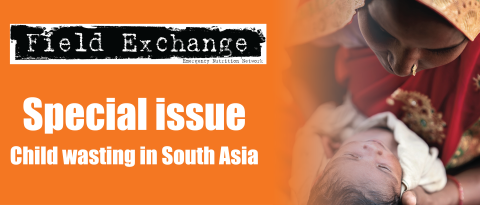Report of the South Asia ‘Stop stunting: Improving Young Children’s Diets’ conference
Report summary1
The third regional conference on stunting hosted by the Secretariat of the South Asian Association for Regional Cooperation (SAARC) and the United Nations Children’s Fund (UNICEF) Regional Office for South Asia (ROSA) was held in September 2019. The conference focused on young children’s diets and the importance of complementary feeding. Country representatives together with researchers, UN partners, civil society organisations and other development partners across the region were brought together to exchange regional analyses, share new evidence and experiences, and identify critical actions across key systems of health, food, social protection, and water, sanitation and hygiene (WASH) to improve young children’s diets.
The conference also provided an opportunity for participants to input into the draft SAARC regional multi-system action framework for improving young children’s diets, as well as developing country priorities for the improvement of young children’s diets in each country’s context. Key actions to accelerate progress were subsequently agreed. These included:
- Position the diets of young children as a priority in national development agendas.
- A multi-system/multi-sector response involving the health, food, social protection and WASH systems.
- Purposeful engagement with multiple stakeholders at national and sub-national level.
- Regularly updated situational analyses (on status, trends and drivers) to inform policies and programmes.
- Social and behaviour-change communication to improve feeding practices, combined with actions to improve access to affordable, safe and nutritious foods.
- Utilisation of multiple delivery platforms, including at the community level, to ensure the reach and uptake of interventions.
- Effective government regulations and policies to protect young children in light of the growing influence of the food and beverage industry.
- National routine information systems and surveys, including appropriate indicators to inform actions, build accountability and track progress.
- Implementation research to understand barriers, enablers and pathways to improving children’s diets.
- Regional platforms to support country-level actions and facilitate learning exchange.
A ‘call to action’ for member states was developed, noting the need for countries to utilise opportunities to improve children’s diets in policies, regulatory measures, strategies, plans and budgets. SAARC was called on to support countries in these efforts through advocacy, regional guidance, training packages and support for formative research. The conference concluded with a reflection on the urgency of the need to improve children’s diets across the region and a commitment by ROSA and SAARC to work with member countries to support the implementation of the key actions identified.


